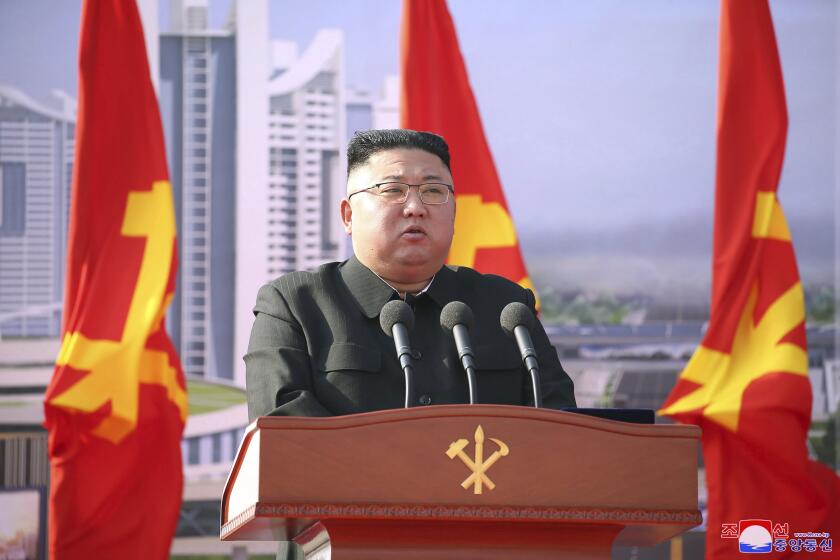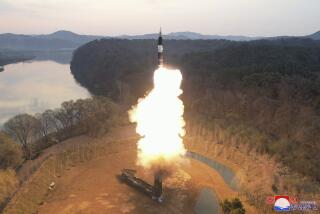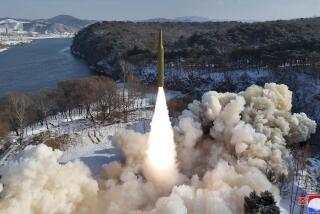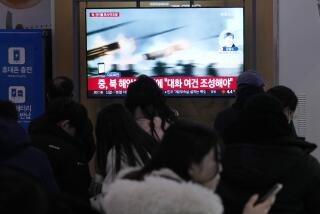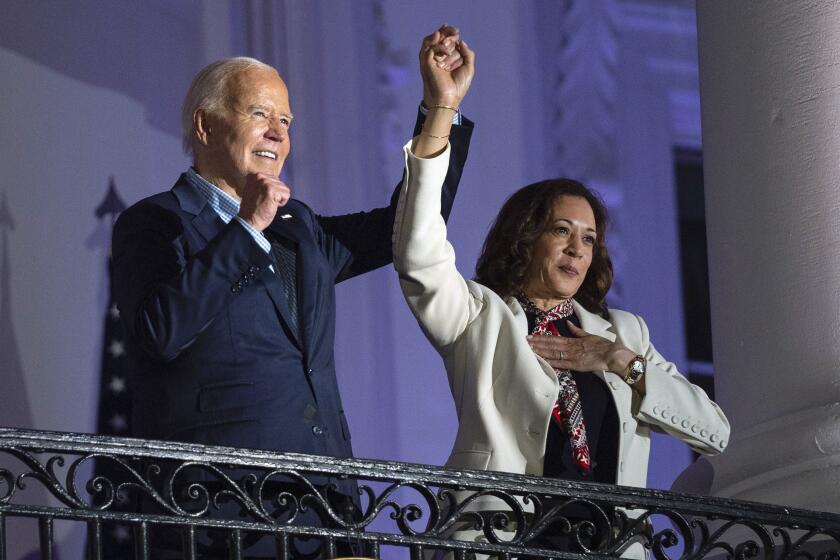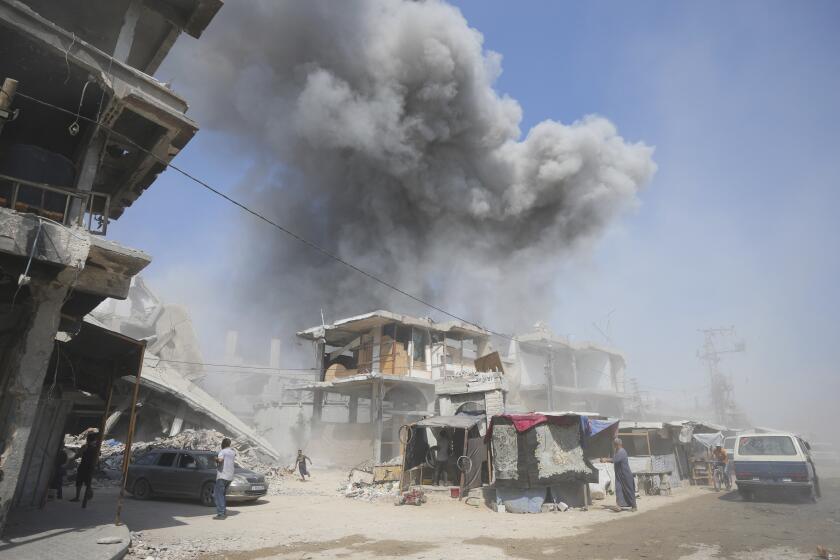North Korea test-fires ballistic missiles in message to U.S.
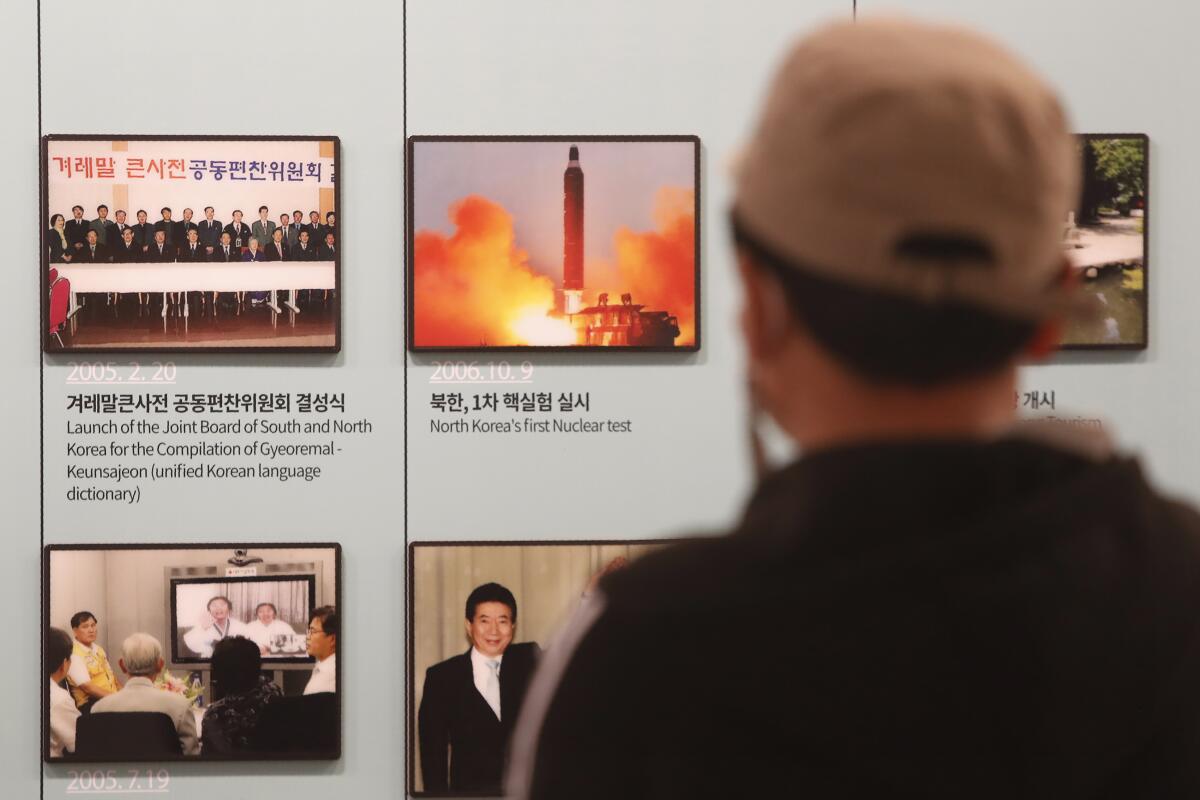
North Korea on Thursday test-fired its first ballistic missiles since President Biden took office, as it expands its military capabilities and increases pressure on Washington while nuclear negotiations remain stalled.
Japanese Prime Minister Yoshihide Suga said that the launches threaten “peace and safety in Japan and the region,” and that his government will closely coordinate with Washington and Seoul on North Korea’s testing activities.
Officials at an emergency National Security Council meeting in Seoul expressed “deep concern” that the government in Pyongyang conducted missile launches while the Biden administration is looking to complete a policy review on North Korea.
South Korea’s Joint Chiefs of Staff said the two short-range missiles were fired around 7:06 a.m. and 7:25 a.m. from an area on North Korea’s eastern coast and flew 279 miles on an apogee of 37 miles before landing in the sea. It said South Korea’s military has stepped up monitoring in case of “further provocations” from the North.
U.S. Indo-Pacific Command spokesperson Capt. Mike Kafka said the U.S. military was aware of the missiles and was monitoring the situation while closely consulting with allies.
Another senior U.S. official, who spoke on condition of anonymity to discuss military observations, matched the information from South Korea’s military, saying that initial assessments suggest North Korea fired two short-range ballistic missiles.
White House says North Korea fired short-range missiles after Kim Jong Un’s sister threatened the U.S. and South Korea for holding military exercises.
“This activity highlights the threat that North Korea’s illicit weapons program poses to its neighbors and the international community,” Kafka said.
The launches came a day after U.S. and South Korean officials said the North fired short-range weapons presumed to be cruise missiles into its western sea over the weekend.
North Korea has a history of testing new U.S. administrations with missile launches and other provocations aimed at forcing Washington back to the negotiating table.
Still, Thursday’s launches were a measured provocation compared with the nuclear and intercontinental missile tests in 2017 that inspired war fears before North Korea shifted toward diplomacy with the Trump administration in 2018.
Analysts say that Pyongyang would gradually dial up its weapons displays to increase its bargaining power as it angles to get back into stalled talks aimed at leveraging nuclear weapons for badly needed economic benefits.
It’s unclear how the Biden administration would respond before it completes its policy review on North Korea in the coming weeks.
The negotiations over North Korea’s nuclear program faltered after the collapse of Kim Jong Un’s second summit with President Trump in February 2019, when the Americans rejected North Korean demands for major sanctions relief in exchange for a partial surrender of their nuclear capabilities.
Since Trump’s first meeting with Kim in 2018, Pyongyang has not conducted nuclear or long-range missile tests, although analysts believe it has pressed ahead with its programs on both.
North Korea has continued short- and medium-range missile testing during its suspension of nuclear and long-range tests, expanding its ability to strike targets in South Korea and Japan, including U.S. bases there.
North Korea has so far ignored the Biden administration’s efforts to reach out, saying it won’t engage in meaningful talks unless Washington abandons its “hostile” policies.
Kim’s politically powerful sister last week berated the United States over its latest round of combined military exercises with South Korea that ended earlier this month, describing the drills as an invasion rehearsal and warning Washington to “refrain from causing a stink” if it wants to “sleep in peace” for the next four years.
The launches came hours before South Korea Foreign Minister Chung Eui-yong met with visiting Russian Foreign Minister Sergei Lavrov in Seoul for discussions on North Korea and other regional issues.
South Korea’s Defense Ministry said the North’s short-range tests on Sunday were its first missile firings since April 2020. Biden played down those launches, telling reporters, “There’s no new wrinkle in what they did.”
While Kim has vowed in recent speeches to strengthen his nuclear weapons program, he also tried to give the new U.S. administration an opening by saying that the fate of the nations’ relations depends on Washington.
During his visit to Seoul last week, U.S. Secretary of State Antony J. Blinken sternly criticized North Korea’s nuclear ambitions and human rights record and pressed China to use its “tremendous influence” to persuade Pyongyang to denuclearize.
More to Read
Sign up for Essential California
The most important California stories and recommendations in your inbox every morning.
You may occasionally receive promotional content from the Los Angeles Times.
